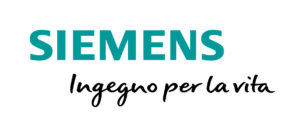From Aerospace to Glass: Titomic’s Cold Spray Technology Expands to New Industries
Titomic, a global company, specializing in advanced manufacturing technologies, is well- known for its innovative approaches to manufacturing. The company has commercialised a technology
called Titomic K inetic Fusion, often referred to as cold spray. Although cold spray is well regarded for its coatings applications, Titomic is now utilising this technology across a range of new applications – from aerospace, to defense, marine, mining, and beyond.
Most recently, the company has partnered with Boeing to undertake flight qualifications of Titomic Kinetic Fusion components, along with providing radiation shielding to Fleet Space’s world-first – a fully additively manufactured satellite, to be launched later in 2023.
Now, the company is set to revolutionise the glass manufacturing industry with its TKF Glass Solutions system, which was recently installed in Austria. The system fully eliminates the need for
glass swabbing by applying a wear and corrosion-resistant coating to glass moulding equipment.

The system automatedly picks up moulds from the production line. Then, the system using Titomic Kinetic Fusion to apply the coating, after which the mould is returned to the production line.
The technology will enable the elimination of glass mould swabbing; a manual process whereby a worker ‘swabs’ the glass molds with grease to reduce wear. Titomic Kinetic Fusion, or cold
spray, is a process that involves the use of high-pressure gas to accelerate powder particles to supersonic speeds . The particles are then directed at a substrate surface, where they impact and
adhere to create a coating or 3D part.
Unlike thermal spray and other additive manufacturing processes that rely on heat to melt and fuse the particles, cold spray operates at relatively low temperatures, typically below the melting point of the material being sprayed. This results in dense and strongly bonded coatings and parts that retain the properties of the original material. Cold spray can be used to apply a wide range of materials, including metals, polymers, and ceramics, making it a versatile technology for various industrial applications . What’s more, is that as the process doesn’t melt metals, it can be used to fuse dissimilar metals together, allowing for materials such as copper and aluminium, titanium and ceramics, and nickel and cast iron to be fused to create multi- metal parts . This enables new opportunities for the manufacture of rocket noz zles, heat exchangers, ballistic panelling, and more.

Titomic ’s low-pressure repair systems are also highly regarded in the industry. The unique process can repair parts and corrosion in a way that is both effective and efficient. This system has been used in a range of applications, including aircraft and marine vessels to remove corrosion and restore geometries without heat. Unlike welding, the process doesn’t create heat affected zones or the risk of heat related distortion.
In conclusion, Titomic ’s innovative manufacturing technologies, including its TKF Glass Solution Systems, have the potential to revolutionize industries and lead to new, more efficient approaches to manufacturing. With Titomic Kinetic Fusion, users are able to create large, high-performance parts from metals which were previously cost prohibitive. These include metals such as commercially pure titanium, with costs competing with Ti-Al-64V, and Inconel 718.
With these metals, Titomic can produce very large parts, at and beyond 1 cubic meter, at record speeds . As they ’re manufactured additively layer by layer, they are manufactured to a ‘near-net shape’. This means that rather than removing 80% of the billet material, only 3-10% of the material needs to be removed to reach the final tolerance. Ultimately, this unlocks commercially viable manufacturing of large scale parts from high- performance metals and super alloys.














